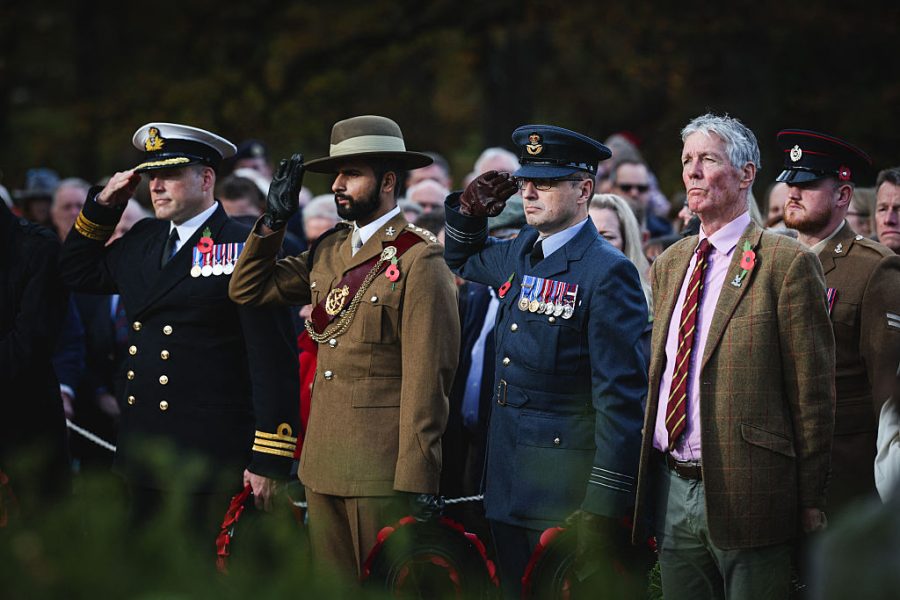Nine retired senior military officers have written an open letter to warn that the expansion of human rights legislation is damaging morale within Britain’s armed forces and undermining their effectiveness. These are among our most eminent generals: all have held four-star rank; three have served as Chief of the General Staff, the professional head of the British Army, and one is a former Chief of the Air Staff, the RAF equivalent.
Their argument is this. Human rights legislation, especially an ‘ever-broadening interpretation’ of the European Convention on Human Rights, is being used to re-examine actions taken by armed forces personnel in combat. This is being done ‘to fight political or ideological battles’ and to say that decisions made in combat situations were in breach of the law, even if they were adjudged to have been lawful at the time.
This concern has recently been played out over the case brought against Soldier F, a lance corporal in the 1st Battalion, Parachute Regiment on Bloody Sunday, who was acquitted of murder last month due to insufficient evidence. The judge did not dispute that innocent civilians had been killed in Londonderry in 1972, but stated that the evidence to convict Soldier F fell below the necessary threshold. As he was first charged in 2019, some felt that the legal process had been allowed to go on too long.
The perception that the law treats veterans of the security forces in the same way as terrorists is grotesque
The signatories of the letter to the Times argue that the effect of this use of ‘lawfare’ is to place an intolerable burden on military personnel forced to take split-second decisions in combat situations. ‘Today,’ they warn, ‘every British soldier deployed must consider not only the enemy in front of them but the lawyer behind them.’
Not only is this ‘paralysing decision-making, distorting rules of engagement and deterring initiative’, but it is also affecting recruitment and retention, especially in Britain’s elite special forces. The generals say that units like the SAS and its Royal Navy counterpart the SBS, which undertake some of the most dangerous and sensitive missions, are experiencing a significant loss of highly trained and experienced personnel because of an erosion of trust between the military and the government.
The letter’s signatories propose that the government disapply the ECHR and the Human Rights Act 1998 from military personnel on active service. They argue that the Overseas Operations (Service Personnel and Veterans) Act 2021 introduced by the Conservative government, which contains a presumption against prosecution and time limits on bringing them, is inadequate, and they dismiss the claimed safeguards in the Northern Ireland Troubles Bill currently before Parliament.
The government’s response is partly its habitual, apparently reflexive, flat denial, channelling Monty Python’s Black Knight: ‘You’ve got no arms left!’ ‘Yes I have.’ It claims the Northern Ireland bill contains ‘robust safeguards’, but it does not prevent future prosecutions of service personnel; it allows inquest proceedings halted by previous legislation to resume; and the legacy commission it establishes will have the power to conduct criminal investigations.
The situation of veterans who served in Northern Ireland is a raw, sensitive one, even 18 years after Operation Banner – the armed forces’ deployment in Northern Ireland – came to an end. But it also illustrates a wider problem.
I would certainly not argue that service personnel on active deployment should be exempt from any laws or regulations. The UK has been a signatory to the Geneva Conventions, which establish standards for conduct and the treatment of non-combatants in war, since 1957. The forthcoming 80th anniversary of the beginning of the imperfect but historic international military tribunal at Nuremberg reminds us there are rules in war.
The boundaries must, however, be drawn for soldiers in a way which recognises the responsibilities placed on them by governments and the conditions in which decisions are made. They must, to a very great extent, be allowed to take the actions they believe necessary at the time to defend themselves and prevent loss of life. We cannot put them in a situation in which they are fearful of all sorts of potential future scenarios which might arise beyond their existing rules of engagement.
What rankles in particular about the situation in Northern Ireland is an attempt by some to assume a moral equivalence between the security forces and terrorist organisations. That, we must dismiss and condemn without hesitation. The First Minister of Northern Ireland, Michelle O’Neill, said in 2022 that the terrorists of the Provisional IRA had ‘no alternative’ and has attended funerals and commemorations for PIRA members. The perception that the law treats veterans of the security forces in the same way as terrorists is not just grotesque, it is deeply corrosive to that sense of trust the generals speak about in their letter.
Today is 11 November, Armistice Day, commemorating the end of the first world war. When we take decisions about the armed forces, it is our duty to remember what we ask of them and the price they might have to pay. It was this contract which John Maxwell Edmonds captured in his 1919 epitaph For A British Graveyard in France: ‘When you go home, tell them of us, and say: “For your tomorrows these gave their today”.’
That is the trust at stake, the duty asked, the sacrifice sometimes required. Our soldiers neither want nor expect carte blanche; but if they feel they have been let down, any government has an obligation to listen with care and sympathy.








Comments